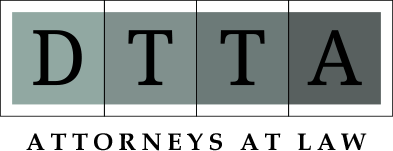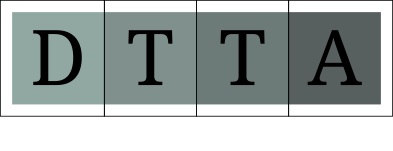

California Chapter 7 Bankruptcy Questions
How Does Chapter 7 Bankruptcy Work?
When you file Chapter 7 bankruptcy in California, the court orders an automatic temporary stay. This stay prevents creditors from calling you, evicting you, repossessing property, foreclosing on your home, turning off your utilities, garnishing your wages, or collecting payment. The court appoints a trustee to oversee your bankruptcy. A meeting with the trustee is required. After you meet with the trustee, the court will determine which debts to discharge.
Who Can File Chapter 7 Bankruptcy?
As stated on our Chapter 7 bankruptcy page, this process is available to individuals and businesses who need relief from overwhelming debts.
Do I Qualify for Chapter 7 Bankruptcy?
Considerations for filing for Chapter 7:
- Is your monthly income equal to or less than California's income median? A means test is used to determine if you make too much to qualify for Chapter 7 bankruptcy. This analysis is done by your attorney. It will determine if your monthly income is too high. The means test analysis can be complicated, so consider discussing your circumstances with our Chapter 7 attorney.
- Is your monthly income sufficient to pay at least some of your debt through a Chapter 13 repayment plan?
- Have you filed Chapter 7 bankruptcy and received a discharge within the last eight years?
- Have you filed Chapter 13 bankruptcy and received a discharge within the past six years?
- Have you had a previous bankruptcy case dismissed within the past 180 days?
- Have you completed an approved credit counseling program within the last 180 days?
How Long Does Chapter 7 Bankruptcy Take?
From filing to discharge, a Chapter 7 bankruptcy case can take up to four to six months. However, some complex cases can take longer. Our bankruptcy attorney will help you estimate if your case could take longer than normal.
HOW LONG DOES CHAPTER 7 BANKRUPTCY STAY ON YOUR CREDIT REPORT?
How long a bankruptcy filing remains on your credit report depends on which type of bankruptcy you file. For Chapter 7 bankruptcy, the filing will stay on your report for 10 years. This is due to Chapter 7 discharging debt without repayment. A Chapter 13 will be removed from your credit report after seven years. In either chapter, the impact on your credit will decrease as time passes. Your credit will become more dependent on your financial management after filing.
HOW MUCH DOES CHAPTER 7 BANKRUPTCY COST?
Several expenses are tied to filing for Chapter 7 bankruptcy. These expenses can include:
- Filing Fee for Chapter 7 - $338 (as of December 1, 2020)
- Converting your Chapter 7 filing to a Chapter 13 filing - Free
- Converting your Chapter 13 filing to a Chapter 7 filing - $25
- Qualified credit counseling course - $19.95 and up
- Credit report - $30 to $35 per person or couple
- Attorney fees vary depending on complexity of case but generally cost around $2,000 in California
An experienced bankruptcy lawyer helps filers avoid mistakes that could result in unnecessary loss of property or dismissal of their case.
HOW OFTEN CAN YOU FILE CHAPTER 7 BANKRUPTCY?
Currently, no limits exist on how many times you can file for bankruptcy. But there are limits on the time between filings. If the court previously discharged your debts through Chapter 7 bankruptcy, then you must wait 8 years before filing again. If you used Chapter 13 bankruptcy to discharge your debts, then you cannot file for Chapter 7 for four years. If the court dismissed a previous bankruptcy filing, you cannot file another bankruptcy case for 180 days.
WHEN SHOULD YOU FILE FOR CHAPTER 7 BANKRUPTCY?
Filing for bankruptcy is an important decision that you should not take lightly. Before you consider filing, analyze your financial situation thoroughly. Are bill collectors harassing you? Do your creditors refuse to negotiate on your payments? This may indicate a need to consider bankruptcy.
Further signs include:
- Anxiety about your debt
- Minimum payments on your credit cards
- Using credit cards to pay for necessities
CAN I KEEP MY HOUSE IN CHAPTER 7 BANKRUPTCY?
Whether you are able to keep your house in a Chapter 7 bankruptcy depends on your situation. Meeting the following criteria will help you keep your home in Chapter 7 bankruptcy:
- If you are current on your mortgage payments
- If state or federal homestead exemptions apply to your equity
- If you can continue making mortgage payments in the future
Having too much equity in your home may convince the trustee to sell it to pay your creditors. If you are behind in mortgage payments or you have too much non-exempt equity, you still have options. Consider filing Chapter 13 bankruptcy instead. Speaking to our experienced bankruptcy attorney in the Inland Empire will help you determine the right course to take.
CAN YOU INCLUDE STUDENT LOANS IN CHAPTER 7 BANKRUPTCY?
Discharging student loan debt with bankruptcy can be very difficult. Most debtors will not be able to get such debts (especial federal student loans) discharged. However, if repaying your student loans would cause you and your family undue hardship, you may be able to get the debt discharged. This process involves filing a separate action known as an "adversary proceeding." In this action, you would need to prove:
- You would not be able to maintain a minimal standard of living if forced to repay the loan.
- You will face hardship during a significant portion of your loan repayment period.
- You made "good faith" efforts toward repayment before filing for Chapter 7 bankruptcy.
The U.S. Department of Education has even more resources to help with your student debt. Consult an experienced bankruptcy attorney if you feel that filing an adversary proceeding may be right for you. The law excepting student loans from discharge is currently under scrutiny and could be changed in the not-so-distant future.
California Chapter 13 Bankruptcy Questions
What Is Chapter 13 Bankruptcy?
Chapter 13 bankruptcy helps individuals with a steady income overcome their debt problems while retaining their property. Sometimes called the "wage earner plan," Chapter 13 helps you restructure your debt into manageable payments. This differs from the Chapter 7 bankruptcy process, which liquidates non-exempt assets.
After determining your eligibility, you will create a repayment plan to submit to the court. This will allow you to restructure your debt into more manageable payments. This plan will take into consideration your:
- Current debts
- Late debt payment
- Current Income and expenses
- Disposable income
- Future earning potential
The California Chapter 13 Bankruptcy Process
The Chapter 13 process can help you catch up on late payments for mortgages, cars, and other debts. Most Chapter 13 repayment plans take place over three to five years. For debtors who make less than California’s median income, repayment plans will be three years long. For debtors who make more than the median, repayment plans are five years. The court must approve these plans. Unsecured debts that are not completely paid off at the end of these plans are usually discharged.
What Are the Benefits of Chapter 13 Bankruptcy in California?
Chapter 13 bankruptcy has many advantages. As with other bankruptcy processes, an automatic stay imposed by the bankruptcy court will begin when you file Chapter 13. This will halt:
- Wage garnishments
- Levies
- Court proceedings
- Creditor phone calls
- Foreclosure
- Repossession
Filing Chapter 13 bankruptcy in California may allow you to keep all your property. This will protect items such as, but not limited to:
- Your home
- Vacation homes
- Investment property
- Vehicles
- Recreational vehicles and boats
- Personal assets
- Business property
- Business assets
During the plan, you make monthly payments to a Chapter 13 Trustee. The Trustee disburses the money to allowed creditors. To make these payments manageable, the court may reduce your liabilities. At the end of your repayment plan, the court will discharge your remaining unsecured debts. This can be an incredible relief to families struggling with financial pressure.
A Chapter 13 plan can pay off income tax liabilities. Student loans can be included in a plan or be put on forbearance until the plan is completed. They can only be discharged if they are not federally insured loans. Bankruptcy court rarely reduces or discharges child or spousal support obligations, but sometimes these can be restructured.
Filing for Chapter 13 bankruptcy also does less damage to your credit. This is due to your effort to repay your creditors.
Why Do I Need a Chapter 13 Bankruptcy Attorney?
As mentioned before, filing for Chapter 13 bankruptcy can be a complex process. You must first determine if you qualify for the process. Before the filing, you must complete an accredited credit counseling course. Then, you must submit a debt reorganization plan to the court. After filing you will need to attend a 341(a) meeting and a confirmation hearing. These are only a few of the tasks required to pursue Chapter 13.
To successfully navigate the entire Chapter 13 process, you should retain an attorney to help. Most Chapter 13 cases filed without an attorney fail. The deadlines, requirements, and restrictions are challenging. One mistake could delay your bankruptcy for months or cause it to be dismissed. Even the Administrative Office of the U.S. Courts recommends consulting with an experienced attorney.
Call Our Chapter 7 & Chapter 13 Bankruptcy Attorney in Redlands for the Help You Need
As you can see, filing a Chapter 7 or Chapter 13 bankruptcy is a complicated task. Hundreds of our clients have obtained immediate peace of mind as we helped them smoothly navigate through the process. Don’t let the complications keep you from getting back on track financially. Bankruptcy attorney M. Wayne Tucker at our Redlands office has over 30 years of experience practicing law. He focuses on bankruptcy cases that help individuals, families, and small businesses get relief from debt and a fresh financial future.
Call Dolen, Tucker, Tierney & Abraham, APLC at (909) 473-4948 or fill out our online contact form to arrange for a consultation with our bankruptcy lawyer in Redlands. Your initial consultation is free and without obligation.
Consultation OUR EXPERIENCED ATTORNEYS ARE READY TO HELP.


